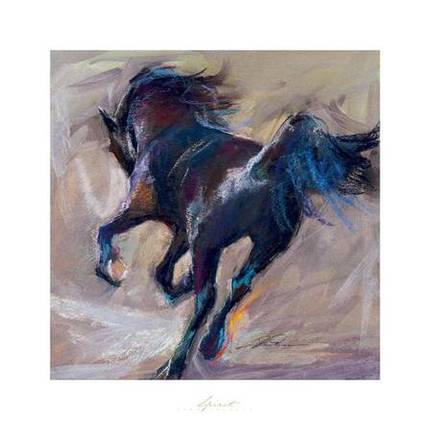| |
"Light
Bulb Moments for Clinic Riders"
By
Patricia Conover
What makes a good
clinic? What makes a good clinician? What is a successful clinic
experience? These are questions that, when faced with a variety of
choices for spending clinic dollars, we as riders assess. Invariably the
information is pretty similar, a focus on the basics, rider position,
horse forward, these are undeniable fundamentals of the dressage
discipline. So what sets one clinic apart from another? From the
comments by the riders at the Raphael Heiligers clinic at KGF Farm in
Kirkland, it is a lot about how the clinician presents himself to the
riders, communicates instruction, and relates with riders and horses.
Raphael Heiligers,
(Raf, as he is called by peers and students) a former member of the
Dutch National Dressage Team, spent three days tuning up rider positions
and building stronger fundamentals in clinic participants. With riders
from training level to FEI, Connemara cross, to 18h warmblood, and
horses recovering from surgery, Raf, tailored his work with each,
reflecting his concern for the wellbeing of horse and rider. As Raf
says, “Horses have similar problems, but that doesn’t mean they can all
be solved the same, you have to take an individual approach.”
Teaching the
foundations as defined by the German method, Raphael assisted one
participant with improving the shoulder in as preparation for a
pirouette, breaking down the movement into concise pieces. “Instead of
thinking about the whole pirouette, if you think about the shoulder in
aspect you don’t get overwhelmed with the whole pirouette,” said Brian
Beemer, who rode Magic, an Appaloosa Percheron cross. (owned by?) Brian,
wanted help with his seat, and Raf provided coaching to avoid tensing
up. Brian appreciated Raphael’s reminder of hand without leg and leg
without hand, meaning drive (leg) or halt (half halt), but avoid
“clashing aids.” “Raf helped me in getting the appropriate amount of
forward movement that allows the horse to raise his back and come
round,” said Brian. Brian’s expectations for what Magic can do have
increased, after watching Raphael ride the horse and create a picture of
softness and throughness. “In addition to being a friendly, observant
clinician, Raphael rides with a beautiful light hand and quiet leg, very
inspiring to watch,” said Brian.
Another clinic
participant was apprehensive from a previous clinic experience that did
not feel very successful. “I was watching Raphael coach Heather Grassman
riding Loki, on flying changes, and I thought, oh, I don’t want to do
that. But once in the ring, he worked with me on being relaxed,
eliminating the smallest tension, even in my wrists, and it was fine … a
very enjoyable, productive experience,” said Laurie Somers who rode her
gelding, Kando. Heather’s Loki a Dutch Warmblood, recovering from
surgery for a bone chip, mastered his changes, “Loki was tired,” said
Heather,” but totally ready to work every day.”
Cinda Peters rode
Willi, her 17.3h Oldenburg, who has been returning to work slowly from
Wobblers surgery. “I came in with some very specific issues including
the physical limitations of my horse. Willi can be heavy in my hand (too
darn big for me to carry that head!), on the forehand, unresponsive to
the leg, difficult to bend, locked in his jaw, and tends to run off
(through the aids) at the canter. I obviously needed help in a big way.
Raf respected the limitations of my horse and worked on improvements to
my position to make everything easier on both of us. My light bulb
moment from the clinic was that when I tip forward with my
head/shoulders (lose my position), Willi naturally speeds up and
falls on his forehand to try to stay under me. My position was key to so
many of my problems with Will. When I kept my center of gravity back and
in my seat, he had to stay with me. Raf was very easy to work with, and
clearly expressed what was needed and why. He really gave my confidence
a boost with Will and made me feel I could be effective in bringing this
horse back to some form even with his compromised condition. We made
headway, and he gave me insight and tools to apply at home.”
As an auditor, I
was able to observe the impact of Raf’s coaching, and of course I also
empathized with the riders (What me, tense?). I heard Raf describe to
one rider that the “corrections are in millimeters,” i.e,, they are very
small, practically invisible, movements. Aha, I said to myself, as if I
hadn’t heard that before. I have since had some success with this,
thinking to myself as I am riding to try less correction instead of big
corrections. Somehow watching a clinic I find perhaps I listen more
intently. Another thing I know is that I have to have reached a point in
my riding that I am able to even consider that corrections might
be small.
Sandra Tillmann,
E.I. member and dressage trainer at KGF Farm, sponsored the Raphael
clinic. In the mid 1990’s, Sandra met Raf when she was riding and
training a very talented , but overly sensitive Trakhener at a facility
in Germany. She had looked around for someone who was able to help her
with this special horse, heard about Raphael’s approach and called him
up. He has been a good friend and mentor ever since.
This was Raf’s 3rd.
trip to the Northwest and part of his spring clinic tour around the
United States. We look forward to his return later in the summer.
|
|

